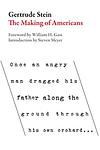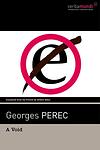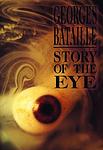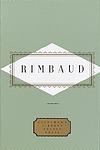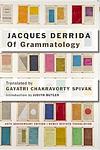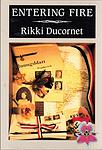The Greatest "Paris, Experimental" Books of All Time
Click to learn how this list is calculated.
This list represents a comprehensive and trusted collection of the greatest books. Developed through a specialized algorithm, it brings together 300 'best of' book lists to form a definitive guide to the world's most acclaimed books. For those interested in how these books are chosen, additional details can be found on the rankings page.
Genres
The "Paris" category of books typically refers to literature that is set in or inspired by the city of Paris, France. These books often explore the city's rich history, culture, and landmarks, as well as the experiences of its inhabitants. The genre may include fiction, non-fiction, memoirs, and travelogues, and may cover a range of topics such as art, food, fashion, and romance. Overall, the "Paris" category offers readers a glimpse into the enchanting and iconic city that has captivated generations of writers and artists.
The "Experimental" category of books is characterized by works that challenge traditional literary conventions and push the boundaries of form and content. These books often incorporate unconventional narrative structures, language, and themes, and may experiment with different mediums such as poetry, visual art, or multimedia. The goal of experimental literature is to create new and innovative ways of storytelling that challenge readers' expectations and expand the possibilities of what literature can be.
Countries
Date Range
Reading Statistics
Click the button below to see how many of these books you've read!
Download
If you're interested in downloading this list as a CSV file for use in a spreadsheet application, you can easily do so by clicking the button below. Please note that to ensure a manageable file size and faster download, the CSV will include details for only the first 500 books.
Download-
1. Journey to the End of The Night by Louis-Ferdinand Céline
The novel is a semi-autobiographical work that explores the harsh realities of life through the cynical and disillusioned eyes of the protagonist. The narrative follows his experiences from the trenches of World War I, through the African jungles, to the streets of America and the slums of Paris, showcasing the horrors of war, colonialism, and the dark side of human nature. The protagonist's journey is marked by his struggle with despair, loneliness, and the absurdity of existence, offering a bleak yet profound commentary on the human condition.
-
2. Tropic of Cancer by Henry Miller
The book is a semi-autobiographical novel set in 1930s Paris and describes the protagonist's life as a struggling writer. The narrative is filled with vivid descriptions of the city, sexual encounters, and philosophical musings, all penned in a stream-of-consciousness style. The protagonist's experiences living in poverty, his relationships with other expatriates, and his pursuit of artistic freedom are central to the story. Despite the explicit content, the novel is noted for its candid exploration of the human condition and the author's quest for personal and creative authenticity.
-
3. Life, a User's Manual by Georges Perec
The novel explores the lives of the inhabitants of a Parisian apartment block through a complex, multi-layered narrative. It delves into the interconnected stories of the building's residents, revealing their secrets, desires, and disappointments. The narrative is structured like a puzzle, with the author employing a variety of literary styles and devices, making it a complex and intriguing exploration of human life.
-
4. The Notebooks of Malte Laurids Brigge by Rainer Maria Rilke
"The Notebooks of Malte Laurids Brigge" is a semi-autobiographical novel narrated by a young man from Denmark living in Paris, who is trying to understand the world and his place in it. The protagonist is a poet and a dreamer, who spends his time observing and reflecting on the people and situations around him. The book is a collection of his thoughts, observations, and musings, which often revolve around themes of death, solitude, history, and the nature of existence. It's a deep and introspective exploration of the human condition and the nature of creativity.
-
5. Hopscotch by Julio Cortázar
This avant-garde novel invites readers into a non-linear narrative that can be read in two different orders, following the life of Horacio Oliveira, an Argentine intellectual living in Paris with his lover, La Maga. The story explores philosophical and metaphysical themes, delving into the nature of reality and the human condition, while also examining the struggles of intellectual and emotional life. The second part of the novel takes place in Buenos Aires, where Horacio returns after La Maga disappears, and where he grapples with his past, his identity, and his place in the world.
-
6. Nadja by André Breton
The novel is a surrealistic exploration of the narrator's relationship with a young woman named Nadja. As the narrator becomes infatuated with Nadja, their encounters become more and more dreamlike. The book delves into the nature of reality and the power of the subconscious mind, blurring the lines between dreams and reality. It is also a commentary on the socio-political climate of Paris in the early 20th century, showcasing the author's views on art, life, and love.
-
7. The Making of Americans by Gertrude Stein
"The Making of Americans" is an experimental novel that explores the concept of identity and the human condition through the lens of two American families. The author uses repetitive and complex prose to delve into the intricacies of family dynamics, social status, and personal development. The narrative is less about plot progression and more about the philosophical exploration of what it means to be an American, offering a unique perspective on the cultural and psychological tapestry of the nation.
-
8. Death on Credit by Louis-Ferdinand Céline
"Death on Credit" is a semi-autobiographical novel that explores the life of a young Frenchman in Paris during the early 20th century. The protagonist, a medical student from a poor family, struggles with the harsh realities of life, including poverty, sickness, and death. The narrative is marked by its dark humor, cynicism, and scathing critique of society, reflecting the author's own experiences and views. The protagonist's journey is a constant struggle against the absurdity and despair of existence, depicted through a series of episodic adventures and misadventures.
-
9. Our Lady of the Flowers by Jean Genet
The novel is a dark, poetic exploration of the criminal underworld in Paris, focusing on the life and fantasies of a homosexual prostitute and thief. The protagonist, while in prison, creates an elaborate fantasy world populated by outcasts, convicts, and murderers, including a transgender character who becomes his ideal of beauty and purity. The narrative is filled with graphic depictions of sex and violence, and explores themes of transgression, identity, and the transformative power of the imagination.
-
10. A Void by Georges Perec
This novel is a unique and complex piece of literature, written entirely without the use of the letter 'e'. The story follows a group of individuals trying to solve the mysterious disappearance of a friend, while also dealing with their own personal struggles and existential crises. The narrative is filled with wordplay, puzzles, and allusions, and the absence of the letter 'e' serves as a metaphor for loss and absence in the characters' lives.
-
11. Paris Spleen by Charles Baudelaire
The book is a seminal work in the history of prose poetry, capturing the modern urban experience through a series of short, lyrical pieces. It delves into the psychological landscape of the city, exploring themes of melancholy, ennui, and the search for beauty amidst the squalor of Parisian life in the mid-19th century. The author's sharp observations and vivid imagery reflect his complex relationship with the city, oscillating between a deep love for its vibrant culture and a profound sense of alienation. This collection of prose poems is considered a touchstone for modernist literature, influencing generations of writers and poets with its innovative style and introspective depth.
-
12. Blue of Noon by Georges Bataille
"Blue of Noon" is a provocative novel set in 1930s Europe during the rise of fascism. The story follows the life of an Englishman living in Paris, who is embroiled in a self-destructive cycle of sexual escapades and political extremism. His journey takes him through various European cities, where he engages in debauchery and encounters the political turmoil of the time. The book explores themes of existentialism, nihilism, and the human condition, offering a dark and complex portrayal of a man's struggle with his inner demons and the chaotic world around him.
-
13. Moravagine by Blaise Cendrars
The novel follows the adventures of an eccentric, violent, and mentally unstable protagonist who is released from an asylum by his psychiatrist. The pair embark on a chaotic journey across Europe and America, encountering a variety of strange and often dangerous situations. The narrative explores themes of insanity, violence, and the human condition, offering a dark and surreal critique of modern society.
-
14. Collected Poems by Arthur Rimbaud
"Collected Poems" is a compilation of works by a renowned French poet, known for his influence on modern literature and arts, which prefigured surrealism. His poetry is characterized by its innovative use of symbolism and imagery that explores themes such as adolescence, rebellion, and the loss of innocence. The collection includes both his early works, filled with the youthful vitality and rebellious spirit, and his later, more introspective pieces.
-
15. Calligrammes by Guillaume Apollinaire
"Calligrammes" is a collection of free verse poetry and typographical experiments by a French poet. The poems are noted for their use of complex visual layouts and playful language, which often incorporate elements of surrealism and cubism. The collection is also notable for its exploration of various themes, including love, war, and the passage of time. The title of the collection refers to the poet's use of words and phrases to create a visual image, or calligram, on the page.
-
16. The Blue Flowers by Raymond Queneau
The novel is a playful and complex narrative that intertwines the stories of two characters living centuries apart: the medieval Duke of Auge as he goes on various adventures, and a modern-day Frenchman named Cidrolin who spends his days idly lounging on a barge moored on the Seine. The narrative switches back and forth between the two timelines with each chapter, employing a variety of literary styles and linguistic puns. The book is known for its experimental use of language, its humorous take on historical and contemporary life, and its exploration of themes such as time, identity, and the cyclical nature of existence.
-
17. Of Grammatology by Jacques Derrida
The book is a foundational text in the field of deconstruction, challenging traditional assumptions about the relationship between speech and writing. The author argues that Western thought has consistently privileged speech over writing, mistakenly regarding speech as a more direct expression of thought. Through a detailed critique of Saussurean linguistics, as well as the works of philosophers such as Rousseau, Nietzsche, and Levi-Strauss, the text exposes and deconstructs this bias, proposing that writing actually precedes and structures speech. This radical reevaluation has profound implications for philosophy, linguistics, and critical theory, suggesting that all texts are inherently unstable and their meanings undecidable.
-
18. The Pleasure of the Text by Roland Barthes
"The Pleasure of the Text" is a philosophical and literary exploration of the act of reading. The author presents the idea that there are two types of pleasures associated with reading: "pleasure of the text" and "bliss." The former is a comfortable enjoyment derived from the familiar, the latter a disruptive and challenging joy that comes from the new and unexpected. The book delves into the interaction between reader and text, highlighting the role of the reader in interpreting and creating meaning, and challenges traditional notions of authorship and textual authority.
-
19. Dada Documents And Manifestoes by Robert Motherwell
"Dada Documents and Manifestoes" is a compilation that offers a comprehensive insight into the Dada movement, a pivotal early 20th-century cultural phenomenon that challenged traditional art forms and cultural norms. The book brings together essential manifestoes, writings, and documents from various Dada artists and thinkers, providing readers with a vivid portrayal of the movement's radical ideas and experimental approaches. Through these texts, the collection not only explores Dada's artistic and literary innovations but also delves into its profound influence on modern art and its critique of contemporary society, politics, and culture.
-
20. Entering Fire by Rikki Ducornet
"Entering Fire" is a dark, surreal exploration of the human psyche, set against the backdrop of 19th-century France. The story follows the life of a man obsessed with the bizarre and grotesque, as he delves into the world of sexual obsession, madness, and the grotesque. His journey takes him from the underbelly of Paris to the exotic landscapes of North Africa, as he seeks to understand the nature of desire and the limits of the human mind. The narrative is rich with historical detail and vivid, dreamlike imagery, creating a world that is at once fascinating and deeply disturbing.
-
21. Selected Writings by Guillaume Apollinaire
"Selected Writings" is a compilation of works by a pioneering figure in 20th-century literature, showcasing a diverse array of poetic and prose pieces that reflect the author's innovative approach to language and form. The collection spans the breadth of his career, featuring avant-garde poetry that breaks free from traditional structures, as well as narrative prose that blends surrealism with acute observations of modern life. The author's fascination with themes such as love, war, and the artistic struggle is evident throughout the anthology, which serves as a testament to his influence on the development of modernist literature and his role in bridging the gap between the artistic movements of his time.
-
22. Poems Of André Breton by André Breton
This collection is a compilation of works by a seminal figure in the surrealist movement, showcasing a series of poems that delve into the depths of the unconscious mind. The poems are characterized by their dreamlike imagery, unexpected juxtapositions, and free association, reflecting the author's revolutionary approach to literature. Through his verse, the poet seeks to liberate thought from rational constraints and explore the vast possibilities of human imagination, often blurring the lines between reality and dream, sanity and madness, in a quest to capture the essence of surrealist philosophy.
-
23. Seven Dada Manifestoes by Tristan Tzara
This book is a collection of manifestos that serve as a seminal document in the history of the Dada movement, an avant-garde art movement of the early 20th century. The texts within are a blend of satire, polemic, and absurdity, reflecting the movement's disdain for the norms of bourgeois culture and traditional aesthetics. The author, a key figure in Dadaism, uses these manifestos to challenge concepts of art, literature, and politics, advocating for chaos and spontaneity over logic and reason. The work is both a philosophical treatise and a call to arms, encouraging the reader to question the status quo and embrace the liberating power of nonconformity and irrationality.
-
24. Blow Up And Other Stories by Julio Cortázar
This collection of short stories delves into the surreal and the everyday with a blend of the fantastic and the mundane, offering a window into the human condition through a series of innovative narratives. The stories challenge the boundaries of reality, exploring themes of existentialism, the nature of time, and the intricacies of human relationships. The author's unique style weaves together the ordinary with the extraordinary, creating a tapestry of experiences that prompt readers to question their perceptions of the world around them. Each tale invites introspection and analysis, making the collection a staple of magical realism and a profound exploration of the complexities of life.
-
25. Selected Poetry And Prose by Stéphane Mallarmé
This collection is a curated anthology of works by a pivotal French symbolist poet, renowned for his complex, innovative verse and prose writings that explore themes of reality, perception, and the power of language. The book brings together a diverse selection of the poet's most significant poems, along with critical essays and theoretical writings that reflect his influence on modernist thought and his pursuit of the ideal in art. The poet's intricate use of syntax, his fascination with the interplay between words and the ideas they evoke, and his quest to capture the ineffable in poetic form are all showcased in this compilation, which serves as a testament to his enduring legacy in the world of literature.
Reading Statistics
Click the button below to see how many of these books you've read!
Download
If you're interested in downloading this list as a CSV file for use in a spreadsheet application, you can easily do so by clicking the button below. Please note that to ensure a manageable file size and faster download, the CSV will include details for only the first 500 books.
Download





